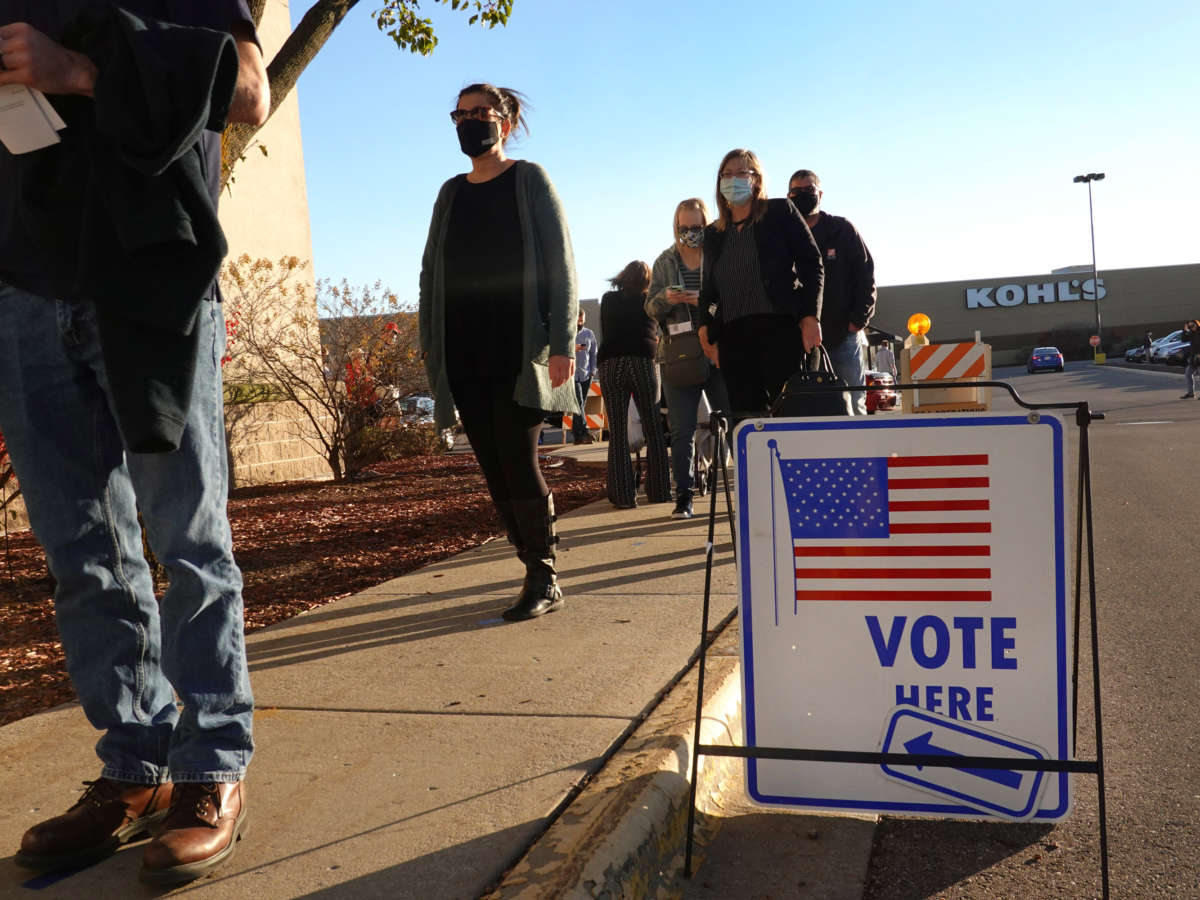New polling shows that a majority of Americans support measures to make voting easier.
A Gallup poll published on Friday surveyed voters on a number of issues related to voting. By and large, voters said they supported reforms to make the process more accessible — and generally reported opposition to putting more restrictions on the right to vote.
“With the midterm elections less than a month away, large majorities of Americans favor three measures meant to make voting easier,” the polling organization wrote on its website.
Seventy-eight percent of Americans said that early voting should be allowed, the Gallup poll found, while only 22 percent said they opposed early voting. Sixty-five percent of voters also support automatic registration, meaning that when a person conducts business with a state government entity, their voter registration records automatically update with that action. And 60 percent of voters said they wanted state and local agencies to send absentee ballots to all eligible voters, the poll found.
Conservative voting “reforms” were rejected by most of the poll’s respondents. Only 39 percent of Americans believe that voters should be purged from registration rolls if they don’t vote for five years, versus 60 percent who oppose the idea. Similarly, only 39 percent said there should be greater limitations on the number of drop boxes or locations for mailing in absentee ballots, while 59 percent said they would oppose more limitations.
The poll found strong support for just one restrictive voting measure: Seventy-nine percent of respondents said they backed voter ID laws, which require voters to present government-issued photo identification before voting.
Voter ID laws place an unnecessary burden on individuals who are otherwise eligible to vote but cannot attain an ID or face significant barriers to getting one. In a report from 2018, the U.S. Commission on Civil Rights noted that voter ID laws “prevent some citizens from voting,” particularly people of color.
The Brennan Center for Justice has made similar assessments. “Overly burdensome photo ID requirements block millions of eligible American citizens from voting,” the organization says on its website. “As many as 11 percent of eligible voters do not have the kind of ID that is required by states with strict ID requirements, and that percentage is even higher among seniors, minorities, people with disabilities, low-income voters, and students.”
Many Republicans have privately admitted that the real purpose of voter ID laws — which are billed as a way to preserve the integrity of elections — is to help them win elections by suppressing voting groups that don’t traditionally support the GOP but have difficulty attaining identification.
In 2015, one GOP operative in Wisconsin resigned from his post in disgust upon hearing his colleagues celebrate the passage of voter ID laws in the state. Right-wing lawmakers championed the new laws in private, not because they serve to protect voters, but because they disenfranchise demographics that typically vote Democrat.
“I was in the closed Senate Republican Caucus when the final round of multiple Voter ID bills were being discussed,” Todd Allbaugh, a former Republican legislative staffer, said one year after the bills were passed. “A handful of the GOP Senators were giddy about the ramifications and literally singled out the prospects of suppressing minority and college voters.”


